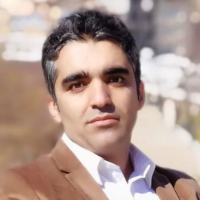Relationship between Educational Vitality based on Academic Meaning and Emotional Fatigue with Mediating Role of students’ Emotional Self-efficacy
The purpose of this study was to investigate the relationship between academic vivacity based on academic meaning and emotional exhaustion with the mediating role of students' emotional self-efficacy. The research method was applied research based on the communication model and according to structural equations, it was a kind of descriptive-correlational research. The statistical population of the study consisted of all students of Payam-e-Noor University of Marivan during 1396 to 1397 that 350 students were selected based on Morgan table and by stratified random sampling. Moreover, a standardized questionnaire of academic vitality was used for data collection such as Hossein Chari and Dehghanizadeh (2012), the educational meaning of Pekran (2005), emotional purity of Shaofli and Wondering (1994) and emotional self-efficacy of Khodayari Fard et al. (2011). Then the hypotheses were tested using the structural equations of the path using lisrel and spss software. Data analysis showed that, there was a significant relationship between academic meaning and emotional exhaustion and academic vitality with the mediating role of emotional self-efficacy. (P = 0/001). According to the results, it can be said that academic vitality, meaning of life and emotional exhaustion were the factors affecting students' emotional self-efficacy. It should be noted that the present study has some limitations including only a limited number of variables and self-reporting tools. Finally, it was suggested that other mediating variables and various tools will be studied in future.
-
The effectiveness of educational package based on academic civic behaviors on improving academic health promoting behaviors in female students
Delband Baban, *, Yahya Yarahmadi
Journal of New Approach to Children's Education, -
The effectiveness of compassion-based group therapy on psychological well-being and marital adjustment of women affected by domestic violence
Parvin Babsoor, *
Rooyesh-e-Ravanshenasi,



